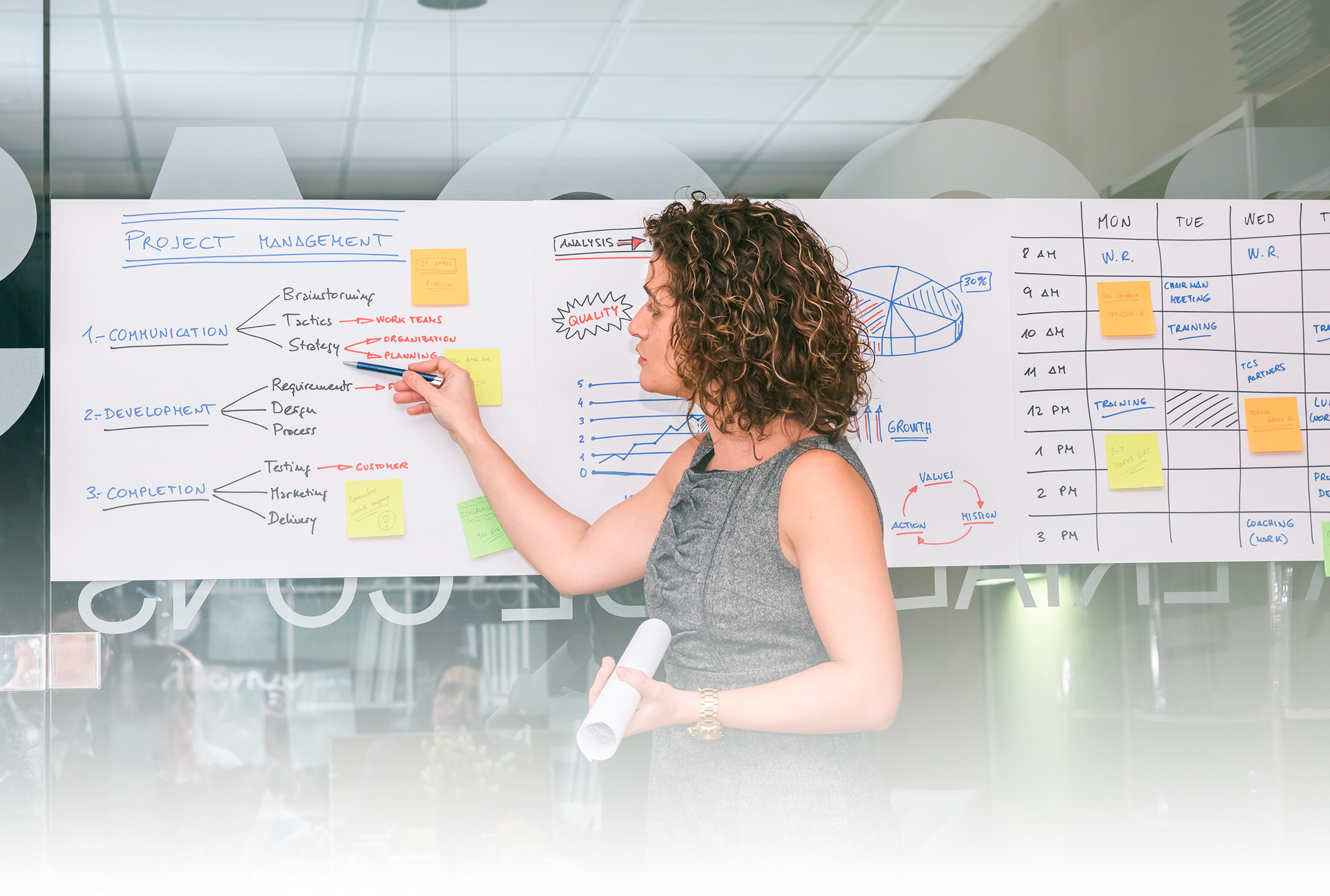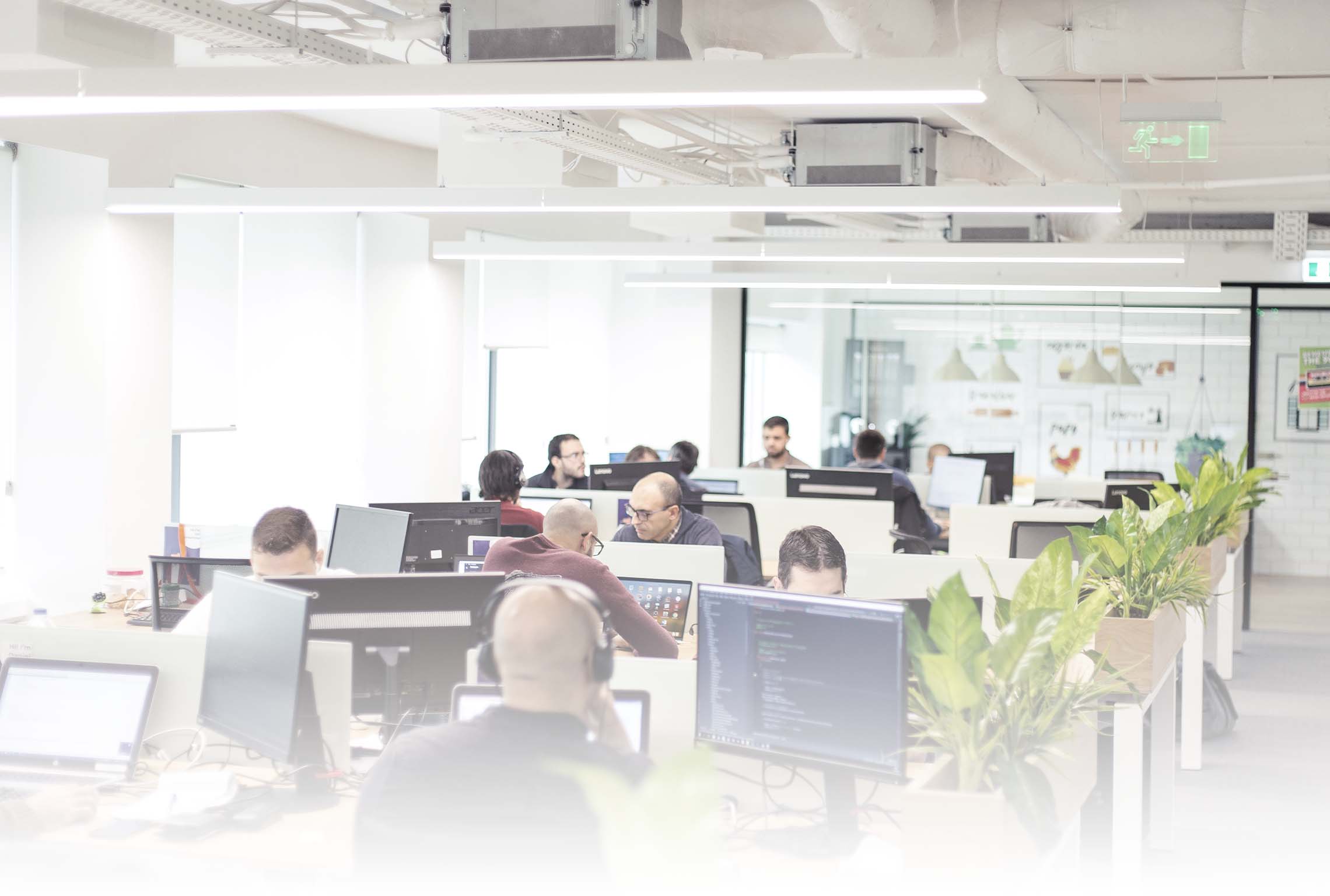The Importance of Employee Experience in the Future of Work
Building a positive employee experience is a critical driver of business performance and competitive advantage in today's talent-driven economy.
Company Culture
June 5, 2024
18 minutes read

“”
A strong, cohesive culture is essential to building a high-performance team and creating an environment where everyone feels valued and motivated to do their best.
Employee experience is an important metric for companies trying to stay relevant in the future of work. Recently, the corporate workspace has changed quickly. Since the Covid-19 pandemic we have seen increasing preoccupation around employee experience trends. This includes work-life balance, mental health support, and employee happiness.
Companies focused on employer branding and employee wellbeing prioritize employee experience. In this article we will explore employee experience, its benefits, challenges, and how it can be managed. We will dive into the importance of tracking employee wellness and the notability Prime Group’s companies have received regarding the Great Place to Work and Happiness Works rankings.
Keep reading to find out more about employee experience and how companies are diving into the realm of employee satisfaction.
What is employee experience?
Employee experience is the perception and feeling an employee has about their interactions, relationships, and overall journey with an organization throughout their employment lifecycle. It includes everything from when an employee applies for a job to when they leave the company.
The key components of employee experience include the physical work environment and tools provided. The company culture, organizational values, and leadership are also pillars of employee wellness. Their relationships with managers and colleagues, as well as development, recognition, and work opportunities. Onboarding processes, feedback, and offboarding processes are also central points of employee experience strategy.
Organizations that prioritize employee experience are usually better able to attract and retain top talent. They are also more prone to increasing productivity and innovation, and delivering better customer experiences.
Building a positive employee experience is a critical driver of business performance and competitive advantage in today’s talent-driven economy. By prioritizing the needs and perceptions of employees, organizations can create a workplace where people thrive and do their best work.
Prime Group’s initiatives towards employee experience:
Prime Group’s companies are invested in their employee’s satisfaction and overall well-being. We are aware that as the future of work approaches, we must make efforts to adapt and embrace the change in the workforce.
Training and Certifications: Prime Group is focused on delivering quality training and learning and development opportunities to our workforce. Internally, we offer training through Prime Group University. The objective of Prime Group University is to train different Group companies in their business areas, training of Business Managers and IT Recruiters in a strategic and continuous way. For our professionals in IT Consulting and Engineering consulting, we partner with training partners, to deliver specialized training. Our technical assessments and certifications are obtained with Codility.
Knowledge sharing sessions: Several of our companies offer the opportunity for in-house professionals to share their expertise in specific areas with other team members. This can happen organically or in monthly knowledge sharing events prepared with a specific topic in mind.
Corporate Social Responsibility: Prime Group invests in corporate sustainability and social responsibility through programs organized by each company. These initiatives can be donations, tree planting, beach clean-ups, or even volunteer work to develop innovate solutions for non-profit organizations.
Wellness Events: Wellness events, such as company sports, check-ups at the office, or gym memberships are a huge part of employee experience. Physical health promotes mental health, and helps employees stay motivated and happy.
Mental health: Prime Group has recently partnered with Team 24 to provide free mental health support to employees across several companies, in an effort to bring the mental health conversation out of the shadows and help combat the mental health pandemic we have been experiencing.
Corporate Events: Corporate events such as Team Breakfasts, Holiday Celebrations, and Summer Get-togethers are something all of our companies have in common. These celebrations are a great driver of team spirit and help solidify company culture.
Family Events: Most of Prime Group’s companies promote events and activities for Father’s Day, Mother’s Day and International Children Day. Whether this events are a company wide activity, or the promotion of a family driven activity, our companies make an effort to make their corporate reality more family friendly, thus promoting work-life balance.
Referral Program: Referral programs help incentivise employees to identify people who fit company culture and reward them monetarily. This helps drives company culture, and helps employees bond with one-another.
Career development: Recently Prime Group has introduced a new role to its corporate landscape. Human Resources Business Partners, or HRBP, are HR professionals who assigned to guide each employee’s career, making sure they are guided through every step of their employment lifecycle with Prime Group.
What are the benefits of a positive employee experience?
A positive employee experience is a key driver of business success in today’s talent-driven economy. In the future of work it will be mandatory for companies to prioritize the needs and perceptions of employees. Organizations can create a workplace culture where people thrive and deliver exceptional results when their focus in on the well-being of their employees. Some of the the main benefits of creating a culture around employee experience are:
Improved Talent Attraction and Retention: Positive employee experience attracts higher-quality candidates who want to work for a great employer. Companies can increase employee loyalty and employee retention by focusing on talent management. By doing so, they are also encouraging top talent to stay with the organization for longer periods of time.
Enhanced Organizational Performance: Employee experience metrics show that employees put forth 40% more effort when the focus is on employee wellness. Employee experience efforts boost individual and team productivity and revenue. Moreover, studies show it increases profits by up to 45% per person-hour.
Better Collaboration and Relationships: Interpersonal interactions are crucial when establishing company culture. By showing employee experience efforts, companies can foster a stronger sense of community and belonging, thus enabling better teamwork, communication and support.
Greater Employee Engagement and Wellbeing: Employee engagement, satisfaction and excitement about their work, improve mental health and work-life balance. Being conscious of employee wellness empowers employees to do their best work with confidence.
Stronger Company Culture and Brand: Having employee engagement efforts boosts a positive company culture and employer branding. It improves the company’s public image and ability to attract customers and boosts employee pride and advocacy for the organization.
What are the challenges of performance management in company culture?
Some challenges might arise when establishing a culture of employee engagement and satisfaction. Companies may face challenges with employee feedback, aligning leadership with HR efforts, and maintaining consistent employee wellness throughout the employee lifecycle. Some challenges related to employee experience and how to overcome them.
Understanding What Employees Want:
Understanding what employees want from their work experience can sometimes be hard for companies. Conducting surveys with thoughtful questions to understand employee perspectives is a good strategy to gathering employee feedback. Encourage managers and leaders to ask employees for feedback and integrate these values into organizational strategies.
Managing and Sustain Change:
Change is inevitable in any part of life. As we approach conversation about the future of work and how the corporate landscape is rapidly changing with generative AI and other technologies, we have to adopt strategies to manage this change. Cross-discipline teams and hands-on training are good methodologies to align the entire organization. Implementing a crawl-walk-run approach, for example, ensures sustainable growth and minimizes disruption.
Mapping the Employee Journey:
Understanding the entire employee lifecycle is crucial for implementing performance management tools and assessing employee experience. Having a well-oiled onboarding process, and fostering continuous collaboration helps the creation of a seamless experience. Furthermore, and having a though-out offboarding process and exit interviews is crucial for employee experience, as it involves every interaction the employee has with the company during their employment lifecycle.
Using Technology Strategically:
Technology can be used as an advantage point for employee satisfaction. Implementing technology that is user-friendly, integrated, and facilitates workflow to reduce administrative burdens and technical difficulties is a great tool to increase employee satisfaction.
Fostering Collaboration:
Create environments where employees can easily collaborate and access tools, promoting teamwork and productivity. Having a united teamwork environment is a great asset for companies trying to improve employee wellness.
Measuring and Monitoring Progress:
Using analytic tools to measure the impact of employee experience strategies can be hard. Conducting surveys and adjusting strategies accordingly is an effective solution through which organizations can create a positive employee experience.
How can companies measure employee experience?
Companies can measure employee experience using a variety of methods and metrics throughout the employee lifecycle. The most effective approach combines multiple data sources to get a holistic view of the employee experience. By tracking metrics like satisfaction, engagement, productivity and wellbeing, companies can identify areas for improvement. After identifying points of improvement, companies can develop strategies to enhance the employee experience throughout the employee lifecycle.
Awards and Authority Figures
Some organizations have emerged to recognize companies that prioritize employee satisfaction as the importance of employee experience and company culture grows. These organizations aim to highlight and reward companies that focus on creating a positive work environment for their employees. By acknowledging and celebrating these companies, they hope to inspire others to prioritize employee satisfaction as well. This recognition can also help attract top talent and improve overall employee retention rates.
At Prime Group, many of our companies have won awards like Great Place to Work or Happiness Works across the years. Regarding the 2024 ranking for Happiness Works, Smart Consulting was among the 20 happiest companies in Portugal.
Lúcia Moura, Smart Consulting‘s HR Manager tells us, “Being certified as one of Portugal’s Happy Companies is a gratifying recognition of our efforts to value the well-being of our employees. Whether through events, partnerships or benefits, we work every day to listen to our team and meet their needs. This distinction shows that we are on the right track and we can only thank our team for making it happen. Our unity and collective effort are the driving force behind our success and motivate us to be better.”
As for the Great Place to Work award, InnoTech was among the winners and became one of the best workplaces in Portugal for the second time in a row.
“We believe that a strong, cohesive culture is essential to building a high-performance team and creating an environment where everyone feels valued and motivated to do their best. At InnoTech, we promote a culture of open feedback and transparent communication, where ideas are valued and everyone’s contributions are recognized.
Our recent international expansion is a clear example of how our organizational culture empowers us to take on new challenges and explore new opportunities for growth. We are confident that with a strong and cohesive culture, we can achieve even more success and continue to grow as a company,” says José Padre Eterno, Founder and CEO of InnoTech.
Surveys
Candidate experience surveys can be valuable to get feedback on the hiring process. Onboarding surveys for new hires in their first few weeks are also useful, as are employee engagement surveys to gauge motivation and commitment. Pulsing surveys for frequent, lightweight feedback is a good methodology to get more valuable feedback.
HR Technology
Tracking employee satisfaction, engagement and productivity metrics is essential for getting positive employee experience. Monitoring employee wellbeing, turnover and internal mobility and analyzing employee sentiment from internal communications is a good approach to gathering feedback regarding employee satisfaction.
Operational Data
Companies can assess employee productivity and performance metrics through performance management tactics, such as employee recognition, peer reviews and 360 feedback. Tracking employee usage of workplace tools and facilities and monitoring employee feedback can help you keep track of a company’s employee experience.
Direct Feedback
Conducting stay interviews to understand what drives employee retention is essencial for HR professionals and leadership to understand real company culture. Gathering employee ideas and suggestions is important to make sure that organizational values truly reflect the people that make-up company fabric.
How to design an employee experience framework?
Designing an employee experience framework involves a comprehensive approach that addresses various touchpoints in the employee lifecycle.
Understand and Define Objectives
Determine what you aim to achieve with the employee experience framework. Goals might include improving retention rates, increasing employee engagement, boosting productivity, or enhancing overall job satisfaction. Ensure that your employee experience goals align with the broader business objectives.
Map the Employee Journey
Identify key touchpoints in the employee lifecycle, including recruitment, onboarding, development, performance management, recognition, and offboarding. Develop personas to understand the diverse needs and expectations of different employee groups.
Gather Feedback and Data
Conduct regular employee surveys, interviews, and focus groups to gather insights about their experiences, needs, and pain points. Use HR analytics to track metrics related to employee engagement, turnover rates, productivity, and other relevant data.
Design the Framework Components
Define the organizational culture and values that should underpin the employee experience. Create a positive physical and virtual work environment that supports collaboration, productivity, and well-being. Develop leadership and management practices that promote open communication, trust, and employee development.
Offer opportunities for continuous learning, skill development, and career advancement. Implement systems for recognizing and rewarding employee contributions and achievements. Include wellness initiatives that support physical, mental, and emotional health.
Implement Technology and Tools
Use HR technology to streamline processes, provide self-service options, and facilitate communication. Implement tools that enhance teamwork and collaboration, such as messaging platforms and project management software. Set up systems for ongoing feedback and employee input, such as pulse surveys and suggestion boxes.
Communicate and Train
Develop a clear communication strategy to keep employees informed about initiatives, changes, and available resources. Provide learning and development tools for managers and employees on the new framework, emphasizing the importance of their roles in enhancing the employee experience.
Monitor and Evaluate
Continuously monitor the effectiveness of the employee experience framework through regular assessments and feedback loops. Be prepared to make adjustments based on feedback and changing organizational needs. Use data to identify areas for improvement and implement necessary changes.
Foster a Continuous Improvement Culture
Encourage a culture of innovation where employees feel empowered to suggest and drive improvements. Regularly benchmark against industry standards and best practices to ensure your employee experience remains competitive.
Why is employee wellness important?
Employee wellness is crucial for several reasons, impacting both the employees and the organization as a whole. Employee wellness can be boosted by wellness programs, employee morale initiatives, compliance efforts, and several other ways.
Happy employees tend to have higher energy levels and better focus, leading to increased productivity and efficiency at work. Enhanced employee morale and job satisfaction can be improved by employees’ mental and emotional well-being, leading to higher job satisfaction and morale. At Prime Group, we have recently partnered with Team 24 in an effort to boost employee mental health efforts across our workforce. Employees who feel their employer cares about their well-being are more likely to feel valued and engaged.
By prioritizing employee wellness, organizations that prioritize employee wellness. This often leads to higher retention rates, as employees are more likely to stay with a company that supports their health and well-being. Lower turnover rates reduce the costs associated with hiring and training new employees.
Ultimately, wellness initiatives can foster a positive workplace culture, encouraging teamwork, and a sense of community among employees. A supportive and healthy work environment can attract top talent, giving the company a competitive edge in recruitment. Moreover, healthier employees tend to be more creative and innovative, contributing fresh ideas and solutions to the organization.







